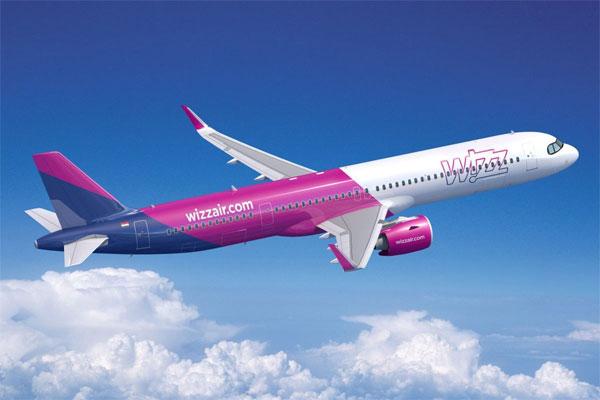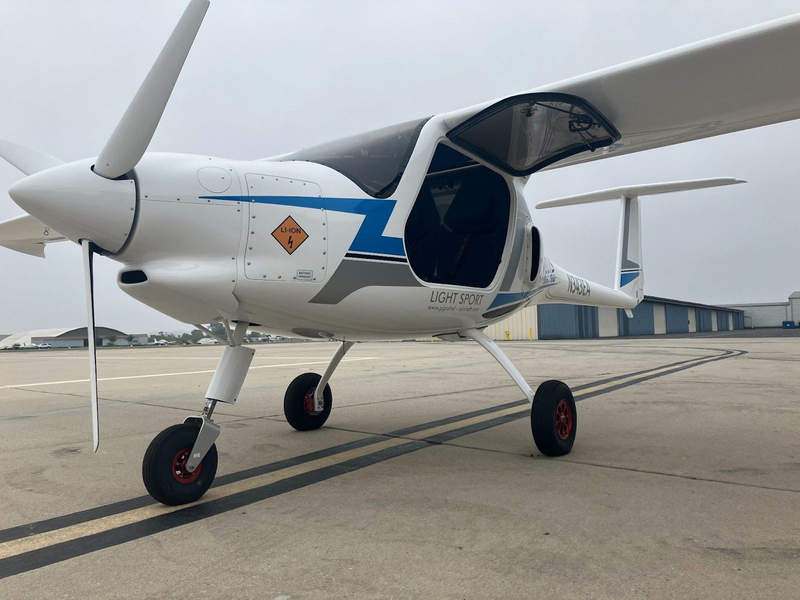
Wizz Air, Europe’ eco-friendly airline, cut 2023 carbon emissions to 51.5g per passenger/km, a 6.8% drop from 2022, leading in CO reduction.
In 2023, Wizz Air, known as Europe’s most rapidly expanding and eco-friendly airline, announced that their average carbon emissions per passenger per kilometer reached 51.5 grams, marking a 6.8% decrease from the previous year. This achievement signifies the lowest annual carbon footprint in the company’s history, highlighting its dominance in carbon intensity reduction among its industry rivals.
February 2023 saw Wizz Air recording its all-time low monthly carbon emissions, at 48.9 grams per passenger per kilometer, reducing by 8.3% from February 2022.
Aiming to slash its carbon intensity by 25% by 2030, Wizz Air is actively renewing its fleet. In 2023, the airline enhanced its fleet with 32 cutting-edge Airbus A321neo aircraft, known for their sustainability. Wizz Air now operates 195 Airbus planes with an average age of just 4.3 years, significantly younger than the European aviation industry’s average of around 10 years.
Furthering its commitment to sustainability, Wizz Air collaborated with Neste and Cepsa, two sustainable aviation fuel producers, in 2023. The airline invested £5 million in Firefly Green Fuels, a UK-based biofuel company, and contributed to a US$50 million investment in CleanJoule, a US SAF start-up. In May 2023, in a pioneering move in Hungary, Wizz Air partnered with MOL to trial SAF supply on five Budapest airport flights, using a 35% SAF blend.
In 2023, Wizz Air introduced fully electric aircraft turnarounds at Rome Fiumicino and Budapest Airports, in partnership with Aviation Services and Menzies Aviation. These initiatives are part of the broader effort to combat climate change in aviation and can reduce CO emissions in ground handling by up to 80-85% per aircraft compared to traditional diesel-powered equipment.
In 2023, Wizz Air, known as Europe’s most rapidly expanding and eco-friendly airline, announced that their average carbon emissions per passenger per kilometer reached 51.5 grams, marking a 6.8% decrease from the previous year. This achievement signifies the lowest annual carbon footprint in the company’s history, highlighting its dominance in carbon intensity reduction among its industry rivals.
February 2023 saw Wizz Air recording its all-time low monthly carbon emissions, at 48.9 grams per passenger per kilometer, reducing by 8.3% from February 2022.
Aiming to slash its carbon intensity by 25% by 2030, Wizz Air is actively renewing its fleet. In 2023, the airline enhanced its fleet with 32 cutting-edge Airbus A321neo aircraft, known for their sustainability. Wizz Air now operates 195 Airbus planes with an average age of just 4.3 years, significantly younger than the European aviation industry’s average of around 10 years.
Furthering its commitment to sustainability, Wizz Air collaborated with Neste and Cepsa, two sustainable aviation fuel producers, in 2023. The airline invested £5 million in Firefly Green Fuels, a UK-based biofuel company, and contributed to a US$50 million investment in CleanJoule, a US SAF start-up. In May 2023, in a pioneering move in Hungary, Wizz Air partnered with MOL to trial SAF supply on five Budapest airport flights, using a 35% SAF blend.
In 2023, Wizz Air introduced fully electric aircraft turnarounds at Rome Fiumicino and Budapest Airports, in partnership with Aviation Services and Menzies Aviation. These initiatives are part of the broader effort to combat climate change in aviation and can reduce CO emissions in ground handling by up to 80-85% per aircraft compared to traditional diesel-powered equipment.





/cdn.vox-cdn.com/uploads/chorus_asset/file/25476438/Gen_3_Cube_Rendering.png)






